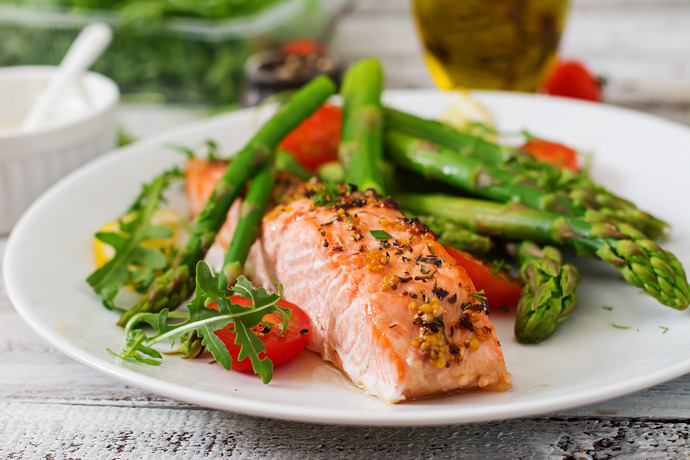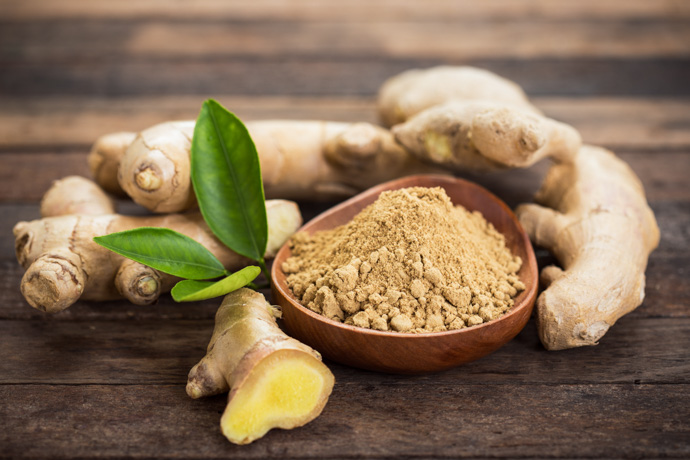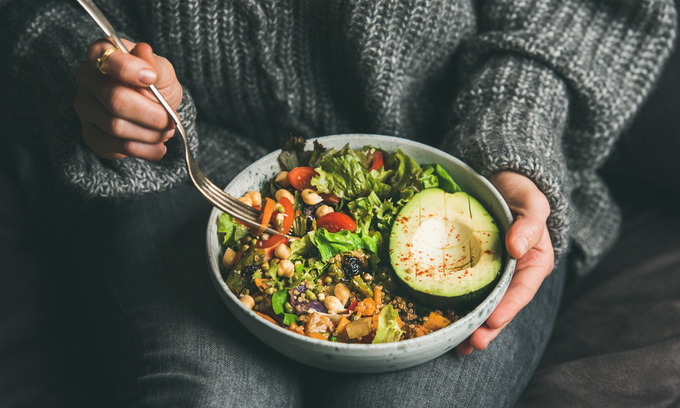
I nflammation is a natural immune system response that helps protect the body, but when it becomes chronic, it can lead to a number of health problems. Fortunately, there are plenty of anti-inflammatory foods out there that can reduce inflammation and improve our overall health. In this article we are going to talk about some of these foods that you can easily incorporate into your diet. We are also going to explain which compounds they tend to contain, and provide you with a list of foods you should avoid.
ÍNDICE DEL ARTÍCULO
Broccoli
Broccoli is one of the most important anti-inflammatory foods on our list thanks to its rich nutrient composition and bioactive compounds. According to an article published in the National Library of Medicine, broccoli suppresses the activity of certain enzymes that cause inflammation in the body.
It also stimulates the production of antioxidant enzymes that serve to protect cells from any damage that may be caused by the immune system's inflammatory response.
Its bioactive compounds include sulforaphane, indole-3-carbinol, isothiocyanates and flavonoids. Broccoli belongs to the cruciferous family, particularly known for its anti-inflammatory properties. Other vegetables such as cauliflower, curly kale and radish also belong to this family.
Cherries
Cherries, in addition to being a juicy, delicious fruit, are also widely recognized for their anti-inflammatory properties and health benefits. Healthline notes that this is because cherries are rich in polyphenols, a compound that helps reduce inflammation, fight cell damage and improve overall health.
The ability of cherries to fight inflammation is particularly relevant in the context of chronic diseases such as arthritis. In fact, scientific studies have suggested that regular consumption of cherries can help reduce the intensity and duration of pain episodes in people suffering from inflammatory joint diseases.
Another plus point for this fruit is that it is also incredibly versatile, since it can be eaten in desserts, smoothies and salads, making it an excellent choice for promoting healthy eating for children. It is one of the key anti-inflammatory foods that can be eaten whenever, wherever and whatever the time of day.
Salmon
The presence of omega-3 fatty acids, particularly eicosapentaenoic acid (EPA) and docosahexaenoic acid (DHA), gives salmon unique anti-inflammatory properties. According to the Arthritis Foundation, it is one of the fish with the highest omega-3 content, along with tuna and sardines.
These foods are anti-inflammatory because their fatty acids interact with immune cells known as leukocytes and enzymes known as cytokines, which are critical to the body's inflammatory response.
In addition, regular consumption of this fatty fish has been found to correlate with a decreased risk of cardiovascular disease, rheumatoid arthritis and other inflammatory disorders.

Chia seeds
These seeds may not be very well known, and incorporating them into dishes can sometimes be a little tricky, but chia seeds are actually quite remarkable in terms of their anti-inflammatory properties. WebMD points out that this food is rich in caffeic acid, a compound that has been shown to be very effective in reducing inflammation.
This compound can also help reduce inflammatory markers, which are often associated with inflammatory diseases such as rheumatoid arthritis.
We recommend adding chia seeds to smoothies, salads, yoghurts or other dishes, depending on individual preferences and cooking skills.
Green tea
Green tea is also known to have anti-inflammatory properties, mainly due to its high flavonoid content. Green tea's ability to reduce inflammation has been linked to several health benefits, including protection against cardiovascular disease and certain types of cancer.
Black tea also shares some of these properties, although the concentration of anti-inflammatory components is lower in black tea.
Incorporating green tea into our diet is very simple, as it can be served as a hot or cold infusion. And thanks to its great taste, you'll enjoy drinking it too.
Ginger
In an article published by the National Library of Medicine entitled Effect of Ginger on Inflammatory Diseases, the anti-inflammatory properties of ginger are highlighted. According to this article, eating ginger could help to improve the quality of life of patients suffering from diseases such as Crohn’s disease, rheumatoid arthritis, psoriasis and systemic lupus erythematosus (SLE).
The presence of bioactive compounds, such as gingerols and shogaols, gives ginger its distinctive spicy taste and, at the same time, contributes to its anti-inflammatory effects. Ginger's anti-inflammatory properties include 6-shoagol, zingerone and 8-shoagol.

Olive oil
Olive oil is not only helpful in reducing our bad cholesterol levels, but it also has anti-inflammatory properties that help boost overall health. Extra virgin olive oil contains oleocanthal, a natural organic compound that has been shown to be very effective against inflammation.
Polyphenols, antioxidant compounds present in olive oil, are another key contributor to its anti-inflammatory properties. Among these polyphenols, hydroxytyrosol has been shown to have anti-inflammatory effects as it suppresses the production of inflammatory cytokines and reduces cellular oxidation.
Olive oil is generally used in dressings and stir-fries, but it can be incorporated into our diets in a variety of ways.
Probiotic foods
In an article discussing the anti-inflammatory diet, the European Institute of Nutrition and Health highlights that probiotic foods such as yoghurt and kefir can be very helpful in balancing gut flora and reducing inflammation.
These foods contain different strains of beneficial bacteria such as Lactobacillus and Bifidobacterium that reach the gut and become part of the microbiota. From there they intervene in the regulation of the immune system, and this is what makes them anti-inflammatory.
What compounds are typically found in anti-inflammatory foods?
Anti-inflammatory foods are rich in a variety of compounds, including phytonutrients, plant-based chemicals with antioxidant and anti-inflammatory properties. This group includes flavonoids, carotenoids and polyphenols, which are often found in high concentrations in certain fruits, vegetables, herbs and spices.
As we mentioned earlier, they can also contain omega-3 fatty acids, specifically eicosapentaenoic acid (EPA) and docosahexaenoic acid (DHA), which are found in foods such as salmon.
The number of compounds is vast and varies from one food group to another. It is precisely for this reason that a balanced diet incorporating fruit, vegetables, lean meats and other types of food is so important.

Tips for shopping and preparation
When looking to adopt an anti-inflammatory diet, foods should be chosen carefully and prepared properly. When buying food, we recommend looking for organic products, as they are less likely to be exposed to pesticides and herbicides that could contribute to oxidative stress and inflammation.
Priority should also be given to healthy oils, such as extra virgin olive oil, which is rich in monounsaturated fatty acids and antioxidants.
In terms of food preparation, we suggest using cooking methods that preserve nutrients. Steaming, grilling, roasting, baking or preparing raw foods are ways to maintain the nutritional integrity of the food.
Avoiding overcooking and excessive use of oils at high temperatures is also important to prevent the formation of pro-inflammatory compounds.
Foods to avoid on an anti-inflammatory diet
To follow an anti-inflammatory diet, not only do you need to start eating more of certain foods, but you also need to cut out any foods that can trigger or exacerbate inflammatory processes in the body.
John Hopkins Medicine recommends avoiding:
- Red meat.
- Processed meats such as sausages and cold cuts.
- Products made with white flour.
- Foods high in added sugars.
- Trans fats.
The list is very long, but the most important thing is to steer clear of processed and ultra-processed foods that often contain trans fats, refined vegetable oils and high levels of added sugars.
The importance of personalized nutritional advice
So, at this point you are now familiar with some of the key anti-inflammatory foods that you can incorporate into your diet. However, it is worth mentioning that, in order to obtain better results, personalized nutritional advice is a must.
Keep in mind that each individual is unique, with specific nutritional needs based on factors such as age, gender, health status, physical activity and personal goals.
A trained nutritionist or health professional can assess individual nutritional needs by gathering detailed information about current diet, food preferences, medical history, and lifestyle.
This assessment can identify potential nutritional deficiencies, food allergies, intolerances or dietary patterns that may affect overall health and contribute to inflammation problems or other chronic conditions.
Sources:
- https://www.ncbi.nlm.nih.gov/pmc/articles/PMC10376324/
- https://www.health.harvard.edu/staying-healthy/foods-that-fight-inflammation
- https://www.healthline.com/nutrition/cherries-benefits
- https://www.ncbi.nlm.nih.gov/pmc/articles/PMC5872786/
- https://www.arthritis.org/health-wellness/healthy-living/nutrition/healthy-eating/best-fish-for-arthritis
- https://www.webmd.com/diet/health-benefits-chia-seeds
- https://www.webmd.com/diet/can-tea-help-with-inflammation
- https://www.ncbi.nlm.nih.gov/pmc/articles/PMC9654013/
- https://www.ncbi.nlm.nih.gov/pmc/articles/PMC3401676/
- https://www.health.harvard.edu/blog/olive-oil-can-it-lower-your-risk-of-dying-early-202203012695
- https://ienutricion.com/dieta-antiinflamatoria-alimentos-desinflamar/
- https://www.hopkinsmedicine.org/health/wellness-and-prevention/anti-inflammatory-diet


